
Post by : Monika
Photo: Reuters
On September 5, 2025, U.S. President Donald Trump made a public statement denying that the United States is seeking to overthrow the government of Venezuela. His remarks came amid rising tensions between the two nations and increased U.S. military activity in the Caribbean region. The situation has drawn global attention because of its potential to escalate into a larger conflict and the involvement of the U.S. military in close proximity to Venezuelan territory.
Background of U.S.-Venezuela Relations
The relationship between the United States and Venezuela has been tense for many years. Since the late 1990s, Venezuela has been led by the Bolivarian government, first under Hugo Chávez and later under Nicolás Maduro. U.S. officials have frequently criticized Venezuelan policies, accusing the government of human rights violations, corruption, and undermining democratic institutions. In return, Venezuela has often accused the United States of interfering in its internal affairs and supporting opposition groups.
The current situation escalated due to concerns over drug trafficking in the Caribbean and the involvement of organized criminal groups. The United States has been monitoring illegal drug shipments from Venezuela and nearby regions, with the Caribbean Sea acting as a key route for narcotics smuggling into the U.S. This concern has prompted the deployment of additional military resources to monitor and intercept drug activities.
The Recent Military Buildup
In recent weeks, the U.S. military deployed ten F-35 stealth fighter jets to an airfield in Puerto Rico, a strategic location in the Caribbean. These jets are part of a larger effort to strengthen anti-narcotics operations and protect U.S. interests in the region. The deployment has raised questions among international observers about whether the U.S. is positioning itself for potential conflict with Venezuela.
In addition to the fighter jets, U.S. naval forces have increased patrols along the southern Caribbean coastline. This includes deploying ships equipped with radar and surveillance systems to monitor maritime traffic and prevent illegal activities. These movements demonstrate the U.S.’s determination to address drug trafficking but have also heightened tensions with the Venezuelan government.
The Venezuelan Vessel Strike
A key event leading to increased tension was a recent U.S. military strike on a Venezuelan vessel. According to U.S. officials, the ship was transporting illegal narcotics tied to the Tren de Aragua, a gang that has been designated a terrorist organization by the U.S. The strike resulted in the deaths of eleven individuals, but the U.S. has not disclosed full details about the cargo or the exact circumstances of the operation.
President Trump defended the strike, stating that it was necessary to stop illegal drugs from entering the United States. He said, “We are committed to protecting our citizens from the devastation caused by narcotics. We will take strong action against anyone trying to profit from this trade.” The strike has been controversial, as some observers question whether it complies with international law and whether it may provoke a military response from Venezuela.
Venezuela’s Response
The Venezuelan government has condemned the U.S. military actions, claiming that they constitute aggression and a threat to national sovereignty. President Nicolás Maduro described the U.S. presence in the Caribbean as a “grave danger” and warned that Venezuela would defend its territory against any foreign intervention.
In response, Venezuela has activated its militia units and conducted military exercises near the southern coast. Reports indicate that Venezuelan F-16 fighter jets flew close to a U.S. Navy warship during these exercises, actions the Pentagon described as “provocative.” Maduro has accused the U.S. of using anti-drug operations as a cover for attempting to influence Venezuela’s internal politics.
Trump’s Denial of Regime Change
Despite the military buildup, President Trump made it clear that the United States is not pursuing regime change in Venezuela. When asked about this issue, he said, “We’re not talking about that. Our goal is to stop drugs, not change governments.” This statement aims to reassure both the international community and U.S. allies that Washington’s focus remains on combating illegal narcotics rather than direct military intervention or political disruption in Venezuela.
Analysts note that Trump’s comments are meant to calm fears of a potential escalation into full-scale conflict. However, the proximity of U.S. military forces and previous strikes against Venezuelan targets have led some observers to question whether the U.S. might shift its approach if drug trafficking or security threats continue to rise.
U.S. Justification for Military Presence
The United States has justified its military presence in the Caribbean primarily on the grounds of drug interdiction and national security. The region is a major transit route for cocaine and other narcotics entering the U.S., and authorities are concerned about the increasing activity of gangs such as Tren de Aragua. This gang has a network of operations spanning multiple countries and is believed to be involved in smuggling, money laundering, and other criminal activities.
President Trump emphasized that the U.S. has a responsibility to protect its citizens from the dangers posed by narcotics. He said, “If we do not act, thousands of Americans could die from drugs. We will not allow that to happen.” The administration’s approach combines intelligence gathering, military operations, and coordination with regional allies to address the threat.
International Reactions
The international community has reacted cautiously to the heightened U.S. military presence. Some countries support U.S. efforts to combat drug trafficking and see the deployments as a legitimate measure to protect public health and security. Others, however, express concern that these actions could escalate into unintended military conflict, especially given Venezuela’s claims of defending its sovereignty.
United Nations officials have called for restraint from both sides and encouraged diplomatic dialogue to resolve tensions. They stress that while combating drug trafficking is essential, it must be done in a way that does not increase the risk of regional instability or violence.
Historical Context
The U.S. has a long history of monitoring and intervening in Latin American countries, often citing security or anti-drug reasons. Previous interventions in countries such as Colombia and Mexico have focused on counter-narcotics operations and strengthening law enforcement. The situation in Venezuela is complicated by its political alignment, economic challenges, and ongoing disputes over democratic governance.
Venezuela’s current government under President Maduro faces internal pressure due to economic difficulties, political opposition, and international sanctions. The U.S. has previously imposed economic and financial sanctions aimed at encouraging political reforms. The deployment of military assets in the Caribbean adds another layer of pressure, but Trump has stressed that these actions are not intended to force regime change.
Risks and Challenges
The Role of Tren de Aragua
Tren de Aragua, the gang cited by U.S. officials, plays a central role in the rationale for the military buildup. The organization is known for controlling illegal drug routes in the Caribbean and for violent activities in several countries. By targeting this group, the U.S. aims to reduce the flow of narcotics and disrupt criminal networks that threaten regional security.
President Trump repeatedly emphasized that the U.S. is focused on dismantling these criminal networks, rather than interfering in Venezuela’s political system. The distinction is important for maintaining legitimacy and avoiding accusations of pursuing regime change.
Diplomatic Measures
Alongside military deployments, the U.S. is pursuing diplomatic channels to manage tensions. Officials are engaging with regional allies, including Colombia, Brazil, and Caribbean nations, to coordinate anti-drug operations and share intelligence. These diplomatic efforts aim to ensure that U.S. actions are seen as part of a multilateral approach to security, rather than unilateral aggression.
The administration is also maintaining communication with the Venezuelan government to prevent misunderstandings and clarify intentions. While the relationship remains strained, dialogue is considered essential to avoiding conflict.
Looking Ahead
President Trump has stated that the U.S. will continue to monitor the situation closely and adjust operations as necessary. While there is no plan for regime change, the presence of U.S. forces and continued strikes against criminal networks indicate a strong commitment to security and anti-drug efforts.
President Trump’s statement denying U.S. intentions to pursue regime change in Venezuela comes amid significant military deployments and ongoing anti-narcotics operations. The situation highlights the delicate balance between protecting national security, combating illegal drugs, and avoiding escalation with another sovereign nation.
As the United States maintains its military presence in the Caribbean and conducts targeted operations against criminal organizations, both the international community and domestic audiences will closely watch developments. The executive emphasis on preventing hostage diplomacy, drug trafficking, and violence illustrates the administration’s focus on law enforcement and regional security rather than political intervention in Venezuela.
This approach reflects a combination of military readiness, diplomatic engagement, and strategic messaging. While the risk of escalation remains, the stated priority is clear: combat drug trafficking and secure U.S. interests without seeking to overthrow the Venezuelan government.
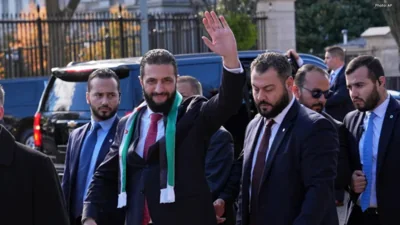
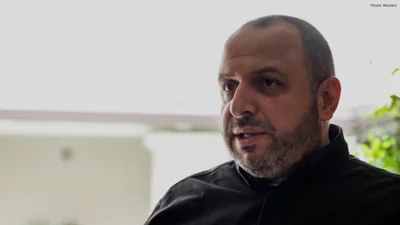
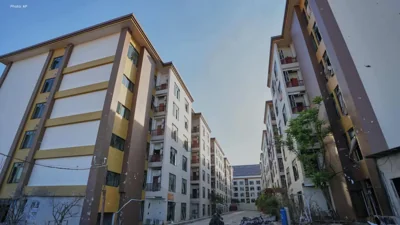

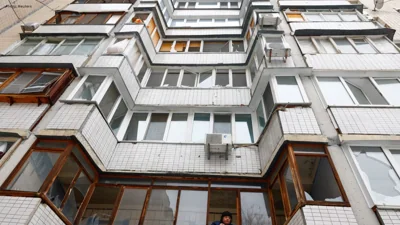
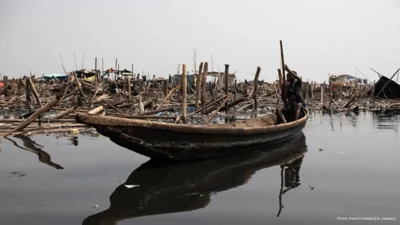

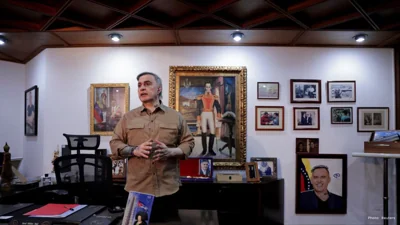


Mattel Revives Masters of the Universe Action Figures Ahead of Film Launch
Mattel is reintroducing Masters of the Universe figures in line with its upcoming film, tapping into

China Executes 11 Members of Criminal Clan Linked to Myanmar Scam
China has executed 11 criminals associated with the Ming family, known for major scams and human tra

US Issues Alarm to Iran as Military Forces Deploy in Gulf Region
With a significant military presence in the Gulf, Trump urges Iran to negotiate a nuclear deal or fa

Copper Prices Reach Unprecedented Highs Amid Geopolitical Turmoil
Copper prices soar to all-time highs as geopolitical tensions and a weakening dollar boost investor

New Zealand Secures First Win Against India, Triumph by 50 Runs
New Zealand won the 4th T20I against India by 50 runs in Vizag. Despite Dube's impressive 65, India